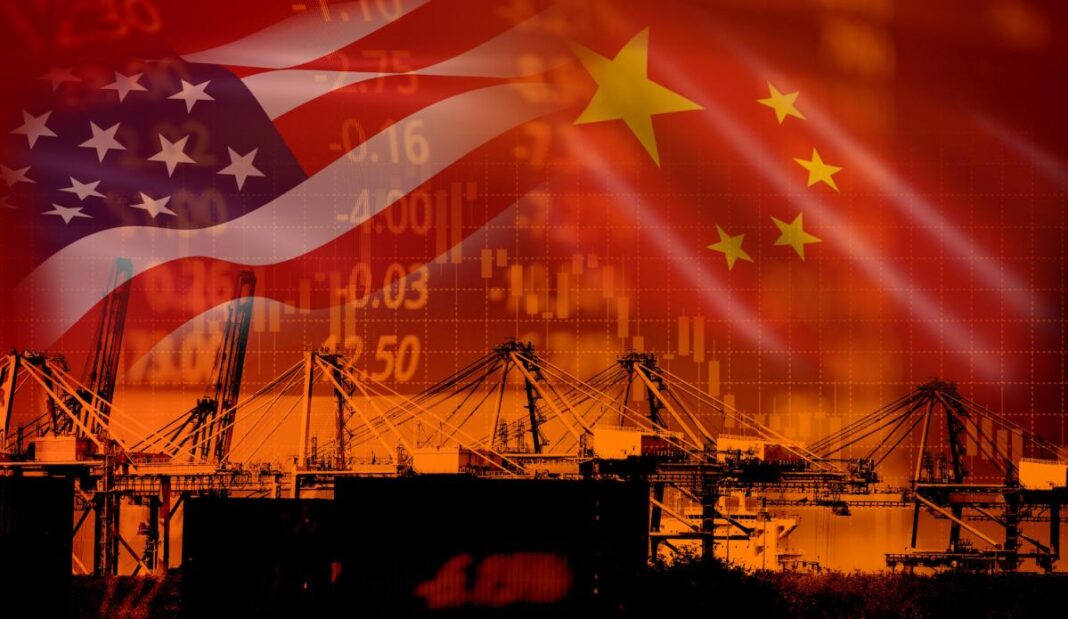The escalating economic tensions between the United States and China have evolved into a multifaceted conflict with profound global implications. This “economic war” encompasses a range of strategies, including tariffs, export controls, and efforts to decouple technological dependencies, affecting economies worldwide.
Escalation of Tariffs
In April 2025, the U.S. administration imposed tariffs totaling 145% on Chinese goods, targeting products such as electric vehicles, lithium-ion batteries, semiconductors, solar cells, and various minerals. In retaliation, China levied tariffs of 125% on American imports, including agricultural products like soybeans and seafood, as well as industrial goods such as machinery and automobiles. This escalation disrupted the $582 billion trade relationship between the two nations, leading to order cancellations, increased costs, and potential layoffs for manufacturers and retailers globally.
Impact on Global Supply Chains
The trade conflict has significantly disrupted global supply chains. Manufacturers and retailers are contending with increased costs, order cancellations, and potential layoffs. Businesses that rely on Chinese production fear long-term impacts on the availability and pricing of consumer goods. The conflict has forced businesses to reconsider global supply chains, looking to other countries like India and Cambodia. However, shifting production is costly and time-consuming, adding to the economic uncertainty.
China’s Strategic Response
In response to U.S. measures, China has taken several strategic actions. Chinese regulators launched an antitrust investigation into DuPont’s Tyvek brand, signaling renewed scrutiny of American firms amid trade strains. Additionally, China imposed export bans on critical minerals essential for semiconductor production and initiated an antitrust probe into U.S. chip maker Nvidia, demonstrating its capacity to retaliate and deter further aggressive actions.
Global Economic Concerns
The International Monetary Fund (IMF) has raised alarms about the potential global economic impact of the U.S.-China tensions. An intensified “cold war” between the two largest economies could reduce global GDP by up to 7%, with lower-income countries potentially suffering losses four times greater than those in wealthier nations. The IMF emphasizes that trade fragmentation today carries a higher price tag compared to the past, given the increased integration of global trade.
China’s Pursuit of Self-Sufficiency
In light of rising trade pressures, China is accelerating efforts to reduce reliance on foreign technology by investing heavily in sectors like electric vehicles, semiconductors, and artificial intelligence. Local automakers such as BYD and Geely have rapidly gained market share in the EV sector, with electric or plug-in hybrid vehicles accounting for 48% of all passenger cars sold in China in 2024. However, challenges persist, particularly in chip production, as China strives to build an economic fortress amid global market tensions.
Broader Geopolitical Implications
The economic conflict between the U.S. and China extends beyond trade, influencing geopolitical dynamics. The rivalry risks splintering the global economy into competing blocs, reminiscent of the Cold War era. Such fragmentation could lead to a world that is both poorer and less secure, affecting international relations and global stability.
The economic tensions between the U.S. and China represent a pivotal moment in global trade and politics. The strategies employed by both nations have far-reaching consequences, not only for their economies but also for global economic stability and geopolitical relations. As the situation develops, continuous monitoring and analysis are essential to understand the evolving dynamics of this complex economic war.


